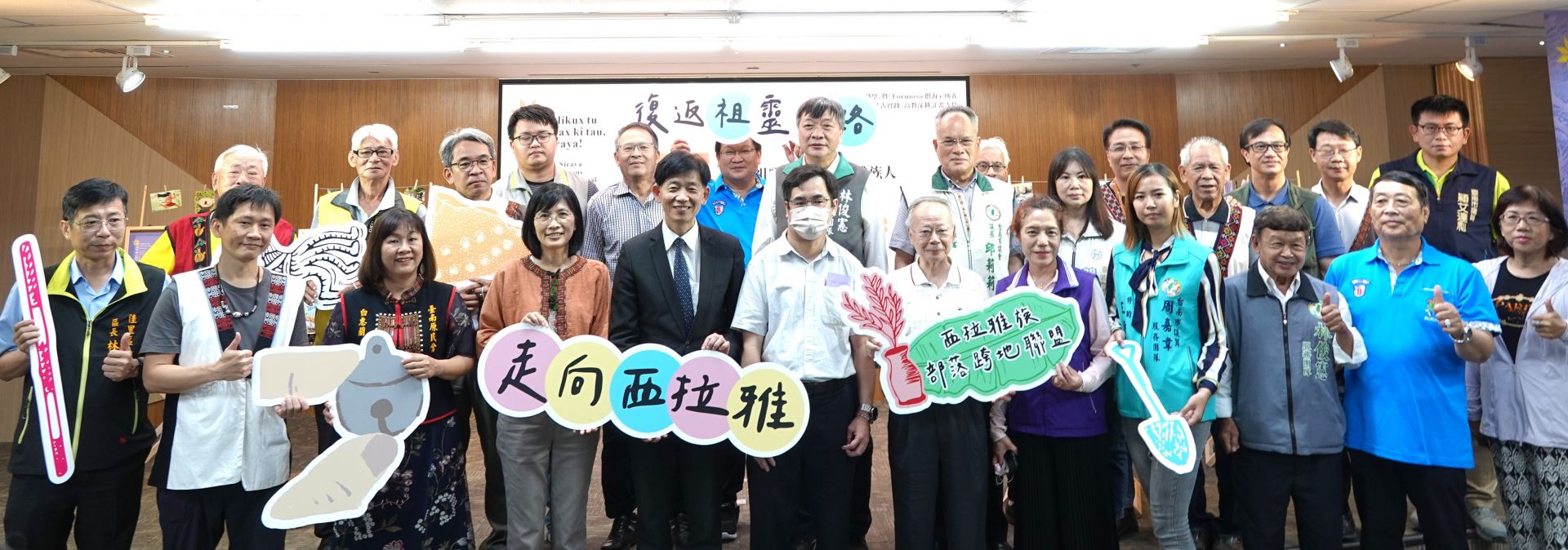SDG16
Academician Xin-Kun Peng Analyze “The Rise of International Trade Protectionism and the Trends of Regional Economic Integration”
Due to the influence of geopolitical factors such as war, natural disasters, pandemics, and energy issues, international trade protectionism has been on the rise in recent years. On November 8, National Cheng Kung University (NCKU) invited Academician Xin-Kun Peng, an academician of the Academia Sinica and Vice President of the Institute, to deliver a lecture as part of the university’s Phoenix Lecture Series. Academician Peng's lecture, titled "The Rise of International Trade Protectionism and the Trends of Regional Economic Integration," discussed the rise of trade protectionism, the current state of global regional economic integration, and the resulting impact on Taiwan’s industries, along with strategies to prepare for future challenges.
President Meng-Ru Shen, in his opening remarks, expressed that Academician Peng is an alumnus of NCKU’s Department of Transportation Management and the first NCKU graduate to be elected as an academician in the social sciences, a great encouragement for the university. This also symbolizes NCKU's success in humanities and social sciences education. President Shen also highlighted that NCKU plays an important role in Taiwanese society and even globally. For example, of the four representatives from Taiwan attending APEC this year, three were NCKU alumni, underscoring the significant contribution of NCKU people to national development.
Academician Peng shared his joy at returning to his alma mater for the lecture, saying that since being elected an academician in 2024, he had received many invitations but had only agreed to speak at NCKU. He expressed his gratitude for the nurturing and training he received from the university, which helped develop his resilient and persistent attitude. Academician Peng mentioned that when he joined Academia Sinica to conduct research, he relied on his determination and relentless effort, which paved the way for his success.
In the lecture, Academician Peng began by discussing TSMC’s global layout to introduce the rise of international trade protectionism. He also shared his research, which involved constructing an innovative intermediate goods trade theory model based on the structure of manufacturing supply chains to reexamine the controversies surrounding trade liberalization. He candidly pointed out that the victory of Donald Trump in the U.S. presidential election, with the Republican Party gaining full control of both houses of Congress, marked the beginning of a real challenge for Taiwan in the global and Asia-Pacific manufacturing supply chains. Facing the technological confrontation between the U.S. and China, trade protectionism is inevitable, and Taiwan must adapt accordingly.
The issue of global regional economic integration presents a significant challenge to Taiwan’s trade. Academician Peng noted that it will be difficult for Taiwan to establish bilateral or regional economic trade agreements in the future. He also analyzed the current situation of agreements such as the Comprehensive and Progressive Agreement for Trans-Pacific Partnership (CPTPP), the Regional Comprehensive Economic Partnership (RCEP), and the Indo-Pacific Economic Framework (IPEF), stressing that Taiwan’s failure to join these agreements would put traditional industries at a disadvantage in terms of tariffs. While Taiwan's electronics industry is currently less impacted due to the WTO Information Technology Agreement (ITA), the situation may change with the Trump administration.
Academician Peng emphasized that joining regional economic trade organizations or bilateral regional organizations is crucial for Taiwan’s manufacturers and industries to gain fair competition opportunities in international markets. He noted that while Taiwan’s industrial supply chains have traditionally been laid out based on economic principles, future strategies must incorporate considerations of resilience, security, reliability, and dynamic adjustments.
After the lecture, the audience had the opportunity to ask questions. One question was about Taiwan’s inability to join various regional economic trade organizations, asking whether politics was the only reason or if there were other factors involved. Academician Peng candidly replied that it was impossible to completely eliminate political influences. Another question from a faculty member concerned the current focus on technology and the semiconductor industry, asking Academician Peng for his views on education in this context. He expressed concern that TSMC’s concentration of top talent could become a hidden problem. If the industry is surpassed by others, the country may face setbacks. He advised students to always adjust their mindset and learn as much as possible, noting that he himself continues to learn, particularly in understanding what AI is doing.
Academician Xin-Kun Peng is a 1968 alumnus of NCKU’s Department of Transportation Management Science. He holds a Ph.D. from the University of Pennsylvania's Regional Science Institute and has been with the Institute of Economics at Academia Sinica since returning to Taiwan. He is also a joint professor at NCKU’s Department of Economics, where he mentors younger scholars with great dedication.
Academician Peng has made outstanding academic contributions in the fields of regional economics, international trade, and public economics. His research continues to advance in three key areas: 1) Urban forms, spatial competition, and regional segregation; 2) Trade, industrial clustering, and firm interactions; and 3) Local public goods and public policy. After Nobel laureate Paul Krugman established the "new economic geography," regional economics has gained widespread attention. Peng has developed several individual-based theories that have deepened the academic understanding of how firms interact through knowledge spillovers, influencing firm clustering patterns and urban structures.
Academician Peng frequently publishes important works in prestigious core journals, including two landmark articles in the Journal of Economic Theory, each of which has been cited over 100 times. With an H-index of 12, he remains one of the top regional economists in Asia, with several of his papers currently under review by top international journals.
President Meng-Ru Shen, in his opening remarks, expressed that Academician Peng is an alumnus of NCKU’s Department of Transportation Management and the first NCKU graduate to be elected as an academician in the social sciences, a great encouragement for the university. This also symbolizes NCKU's success in humanities and social sciences education. President Shen also highlighted that NCKU plays an important role in Taiwanese society and even globally. For example, of the four representatives from Taiwan attending APEC this year, three were NCKU alumni, underscoring the significant contribution of NCKU people to national development.
Academician Peng shared his joy at returning to his alma mater for the lecture, saying that since being elected an academician in 2024, he had received many invitations but had only agreed to speak at NCKU. He expressed his gratitude for the nurturing and training he received from the university, which helped develop his resilient and persistent attitude. Academician Peng mentioned that when he joined Academia Sinica to conduct research, he relied on his determination and relentless effort, which paved the way for his success.
In the lecture, Academician Peng began by discussing TSMC’s global layout to introduce the rise of international trade protectionism. He also shared his research, which involved constructing an innovative intermediate goods trade theory model based on the structure of manufacturing supply chains to reexamine the controversies surrounding trade liberalization. He candidly pointed out that the victory of Donald Trump in the U.S. presidential election, with the Republican Party gaining full control of both houses of Congress, marked the beginning of a real challenge for Taiwan in the global and Asia-Pacific manufacturing supply chains. Facing the technological confrontation between the U.S. and China, trade protectionism is inevitable, and Taiwan must adapt accordingly.
The issue of global regional economic integration presents a significant challenge to Taiwan’s trade. Academician Peng noted that it will be difficult for Taiwan to establish bilateral or regional economic trade agreements in the future. He also analyzed the current situation of agreements such as the Comprehensive and Progressive Agreement for Trans-Pacific Partnership (CPTPP), the Regional Comprehensive Economic Partnership (RCEP), and the Indo-Pacific Economic Framework (IPEF), stressing that Taiwan’s failure to join these agreements would put traditional industries at a disadvantage in terms of tariffs. While Taiwan's electronics industry is currently less impacted due to the WTO Information Technology Agreement (ITA), the situation may change with the Trump administration.
Academician Peng emphasized that joining regional economic trade organizations or bilateral regional organizations is crucial for Taiwan’s manufacturers and industries to gain fair competition opportunities in international markets. He noted that while Taiwan’s industrial supply chains have traditionally been laid out based on economic principles, future strategies must incorporate considerations of resilience, security, reliability, and dynamic adjustments.
After the lecture, the audience had the opportunity to ask questions. One question was about Taiwan’s inability to join various regional economic trade organizations, asking whether politics was the only reason or if there were other factors involved. Academician Peng candidly replied that it was impossible to completely eliminate political influences. Another question from a faculty member concerned the current focus on technology and the semiconductor industry, asking Academician Peng for his views on education in this context. He expressed concern that TSMC’s concentration of top talent could become a hidden problem. If the industry is surpassed by others, the country may face setbacks. He advised students to always adjust their mindset and learn as much as possible, noting that he himself continues to learn, particularly in understanding what AI is doing.
Academician Xin-Kun Peng is a 1968 alumnus of NCKU’s Department of Transportation Management Science. He holds a Ph.D. from the University of Pennsylvania's Regional Science Institute and has been with the Institute of Economics at Academia Sinica since returning to Taiwan. He is also a joint professor at NCKU’s Department of Economics, where he mentors younger scholars with great dedication.
Academician Peng has made outstanding academic contributions in the fields of regional economics, international trade, and public economics. His research continues to advance in three key areas: 1) Urban forms, spatial competition, and regional segregation; 2) Trade, industrial clustering, and firm interactions; and 3) Local public goods and public policy. After Nobel laureate Paul Krugman established the "new economic geography," regional economics has gained widespread attention. Peng has developed several individual-based theories that have deepened the academic understanding of how firms interact through knowledge spillovers, influencing firm clustering patterns and urban structures.
Academician Peng frequently publishes important works in prestigious core journals, including two landmark articles in the Journal of Economic Theory, each of which has been cited over 100 times. With an H-index of 12, he remains one of the top regional economists in Asia, with several of his papers currently under review by top international journals.
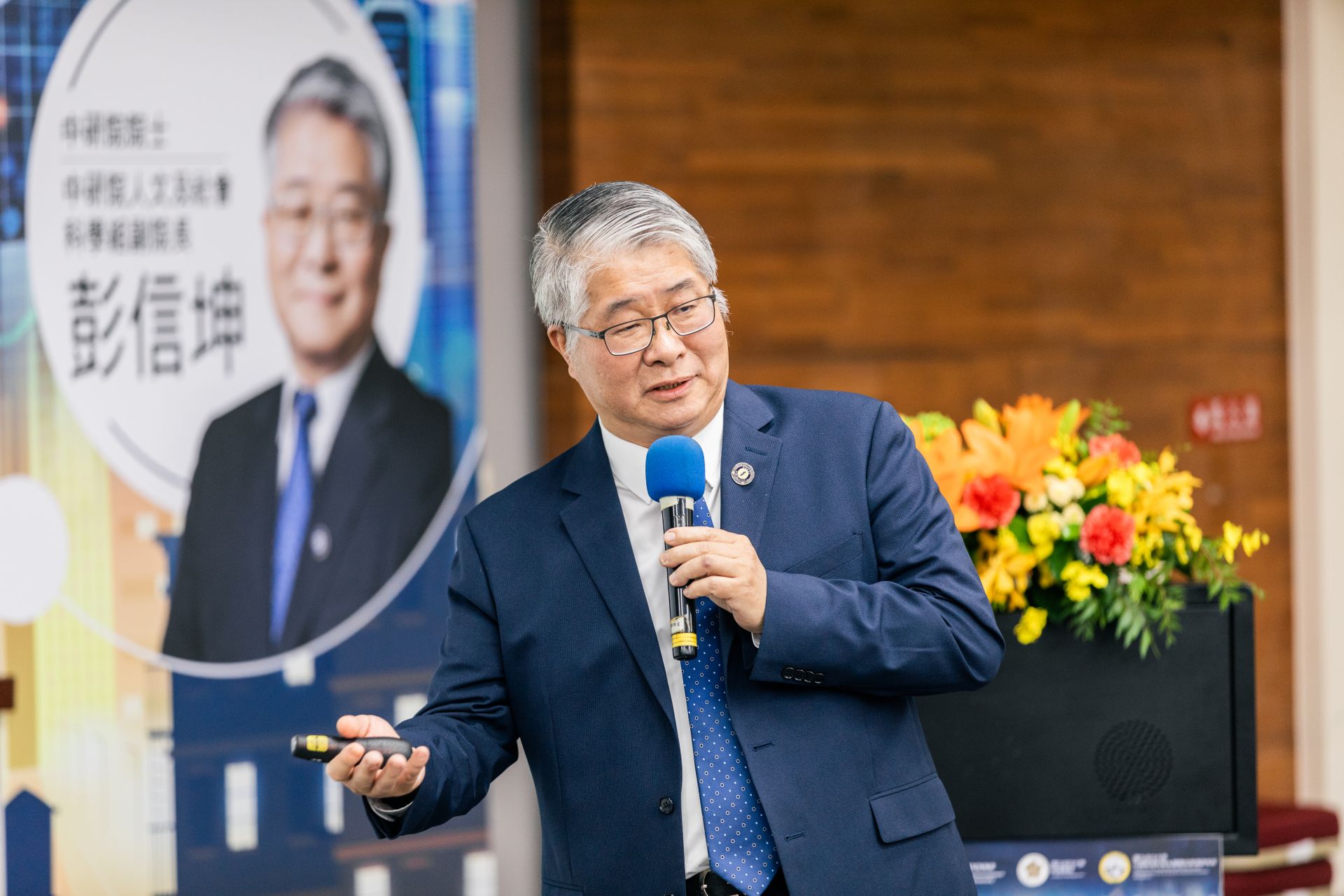
Academician Xin-Kun Peng Visits Alma Mater to Give a Lecture
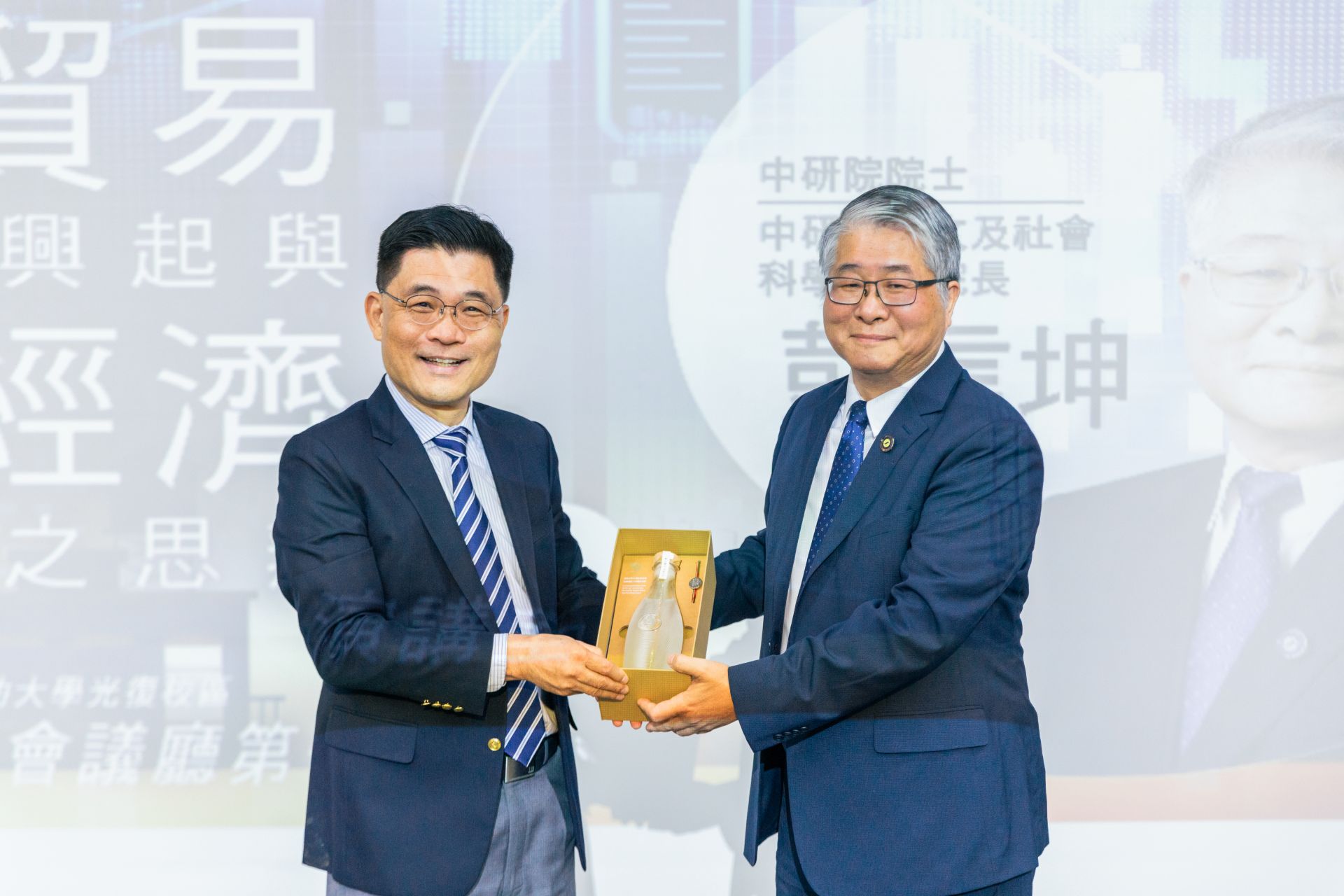
President Meng-Ru Shen (left) presents Academician Xin-Kun Peng with a commemorative Kaohsiung University wine.
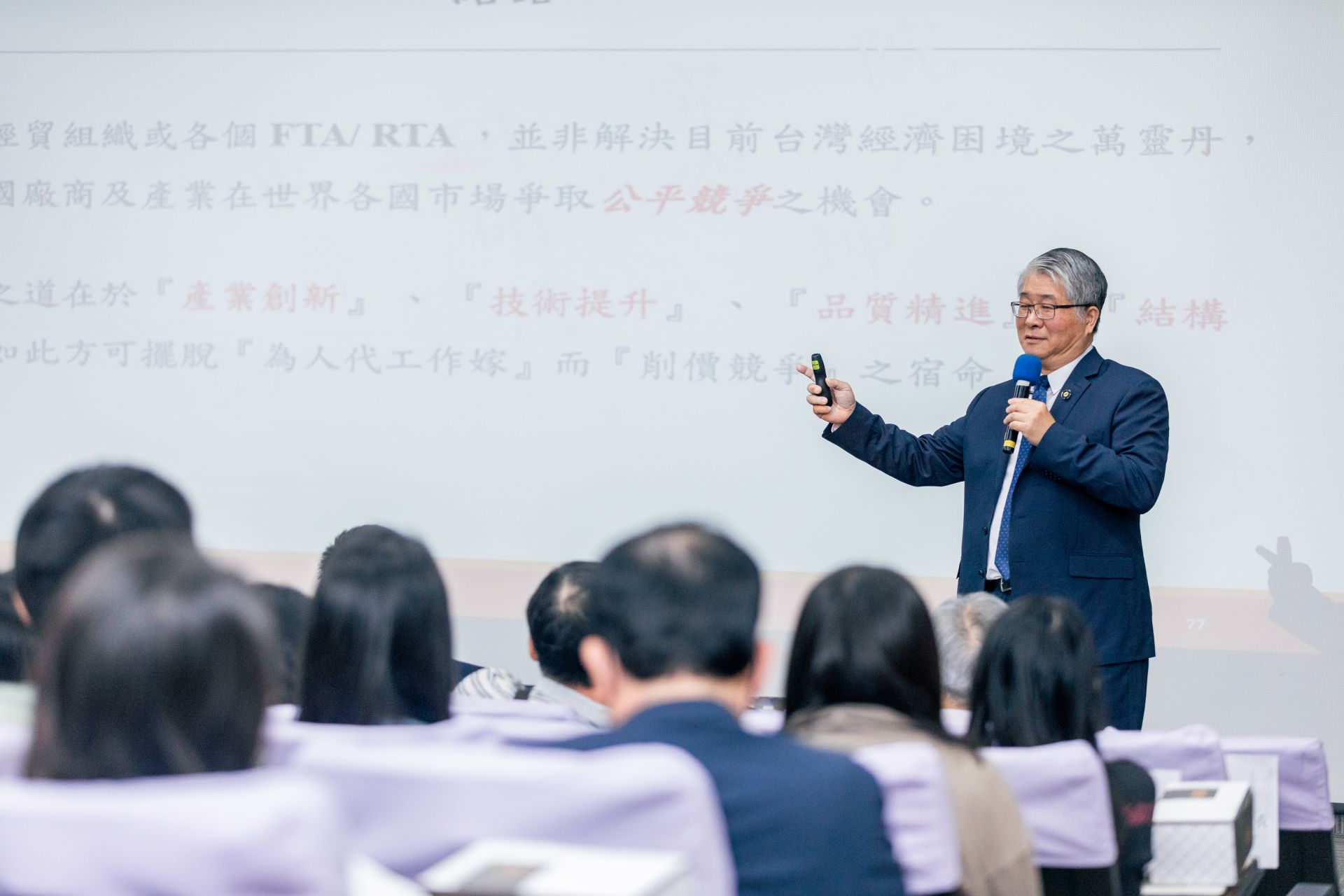
Academician Peng delivered a clear and insightful lecture, conveying his academic expertise to the faculty and students of NCKU.
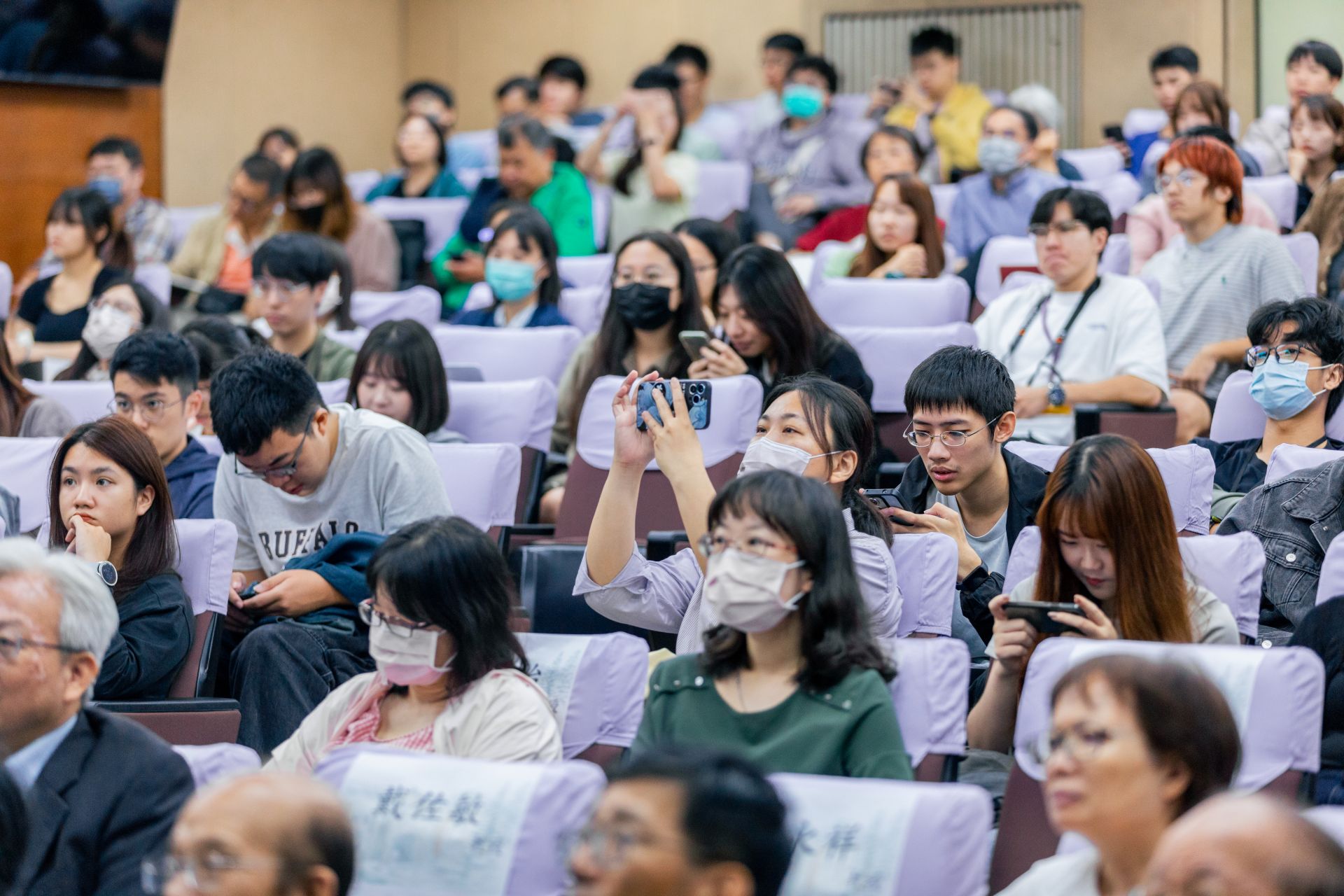
Faculty and students in the audience listen attentively to Academician Peng's lecture.
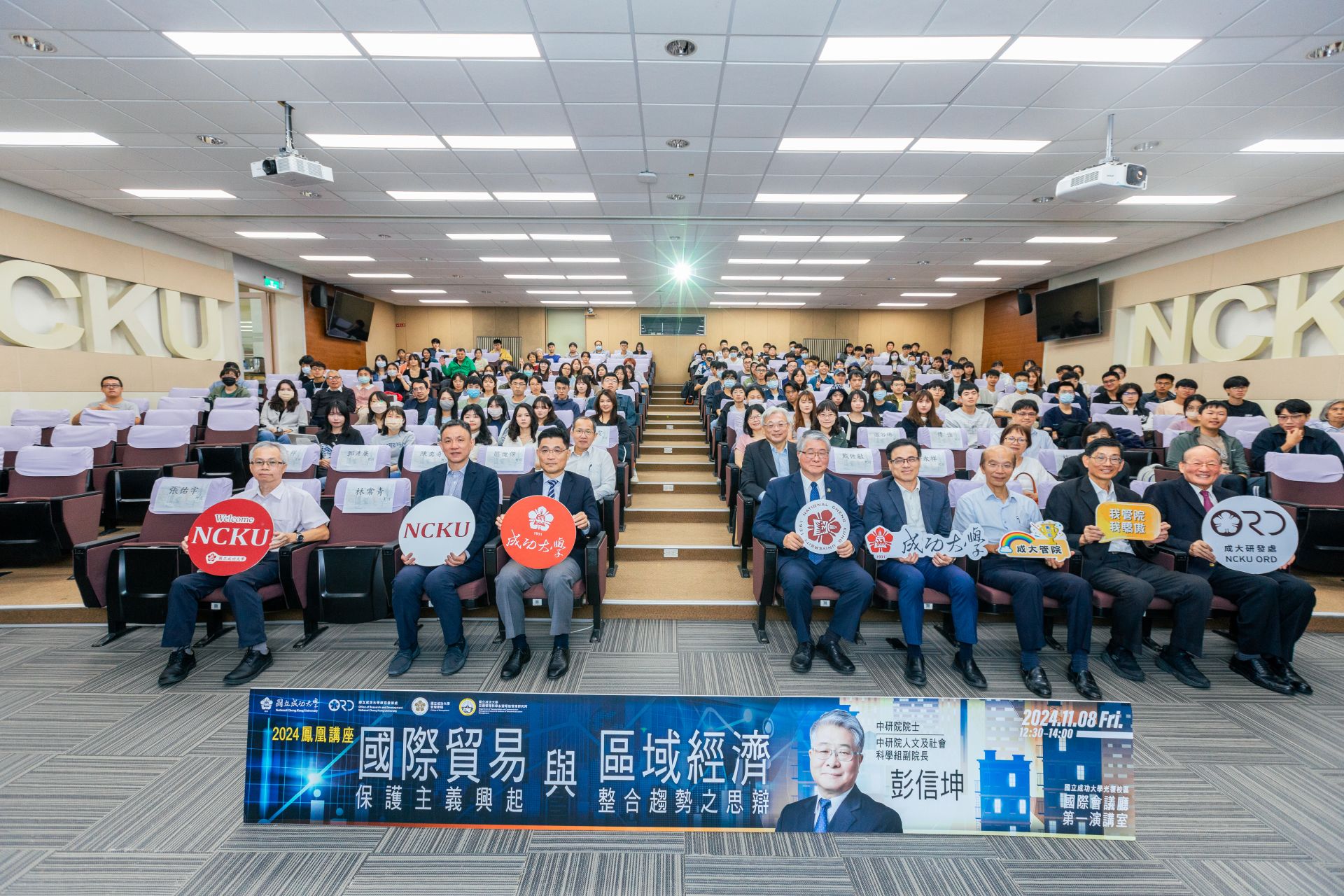
A group photo of all attendees.

SDG16【94th Anniversary】Art is Human Rights: 2025 Tainan International Human Rights Arts Festival Kicks Off Spectacularly
View more
SDG16NCKU CHASS Launches Jian Ji & Taiwan Farmers’ Union Centennial Exhibition at Tang Te-Chang Residence
View more